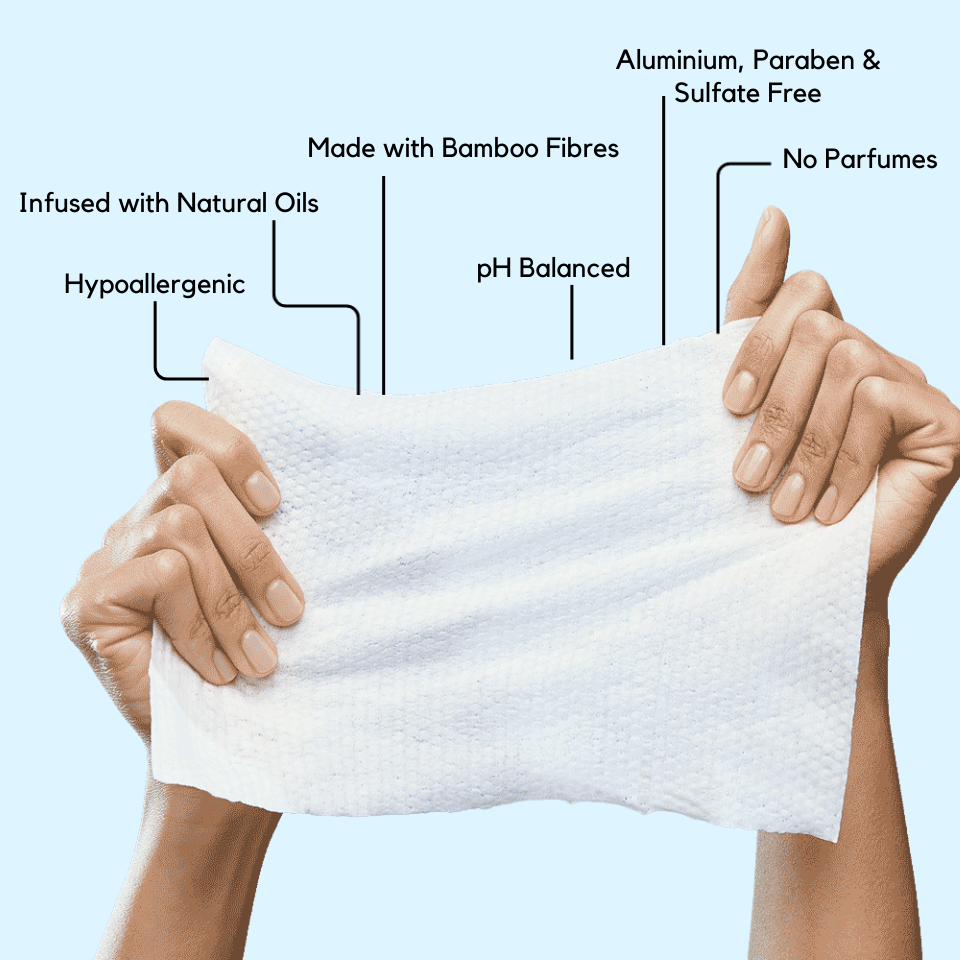
Aluminium, Parabens, Phthalates & Sulfates in Body Wipes: Why You Should Care
Biodegradable wipes chemical-free formula
When it comes to body wipes, what you don’t see on the label matters just as much as what you do. Two of the most common chemical additives in conventional wipes are parabens and sulfates, and both raise concerns not only for your skin, but also for the planet. As someone who cares about what goes on my skin, I’ve learned how important it is to look closely at these ingredients.
What is Aluminium?
Aluminium compounds are commonly found in personal care products, particularly in deodorants, because they help block sweat. However, when used in wipes, these compounds can sometimes leave a residue on your skin that clogs pores. This buildup may irritate or even lead to breakouts, especially for those with sensitive skin. There is an ongoing debate about the long-term effects of aluminium exposure. Some scientific studies suggest a possible link to skin sensitivity and other health risks.
What Are Parabens?
Parabens are synthetic preservatives used to extend shelf life. While they do help prevent bacteria growth, research from the Mayo Clinic suggests parabens may mimic hormones in the body and are linked to endocrine disruption and other health concerns [Mayo Clinic]. For people with sensitive skin like mine, parabens can also bring on redness, itching, or dryness.
What About Sulfates?
Sulfates (such as sodium lauryl sulfate, or SLS) are common cleansing agents. They’re great at breaking down oil and dirt, but they can also strip away your skin’s natural oils, which may lead to dryness and irritation. Sulfates can weaken the skin barrier function, especially for people with eczema or sensitive skin, something I’ve personally struggled with.
What are Phthalates?
Phthalates are usually hidden in artificial fragrances to make scents last longer. Research links them to hormone disruption, allergic reactions, and skin sensitivity. Because wipes are leave-on products, phthalates can sit on your skin for hours, increasing exposure.
Why It Matters in Body Wipes
Unlike shampoos or soaps, wipes are not rinsed off. That means any parabens or sulfates stay on your skin, increasing exposure over time. This is especially concerning for delicate areas like the face, underarms, or after exercise, when skin is more absorbent.
The Better Alternative
Choosing wipes made with plant-based ingredients and gentle preservatives makes a real difference for your skin and the environment. I always recommend looking for biodegradable fibres, natural oils, and labels that clearly state “paraben-free” and “sulfate-free.” Sites like Healthline offer up-to-date information on safer alternatives and what to look for in personal care products.

At EarthlySafi, our wipes are:
- 100% paraben-free & sulfate-free
- Made with bamboo fibres and natural botanicals
- Designed to cleanse, hydrate, and refresh without compromise
Takeaway: Parabens and sulfates may keep products shelf-stable, but they come at a cost to your skin and long-term health. Opt for clean, eco-conscious alternatives that work with your skin, not against it.
